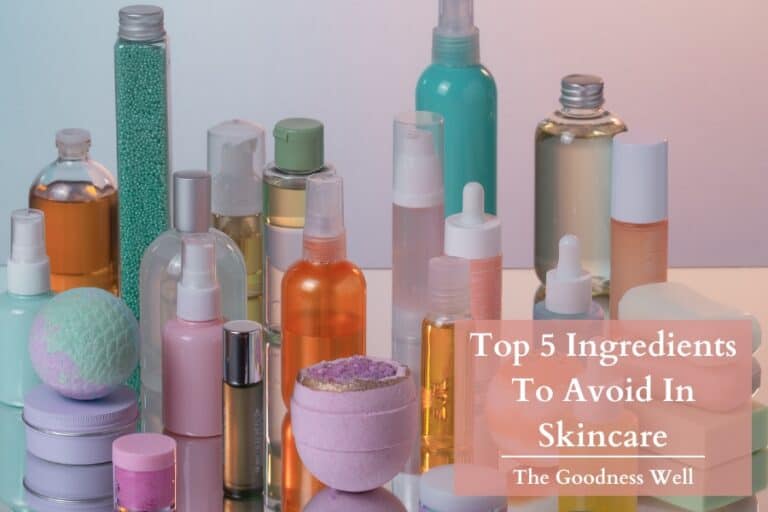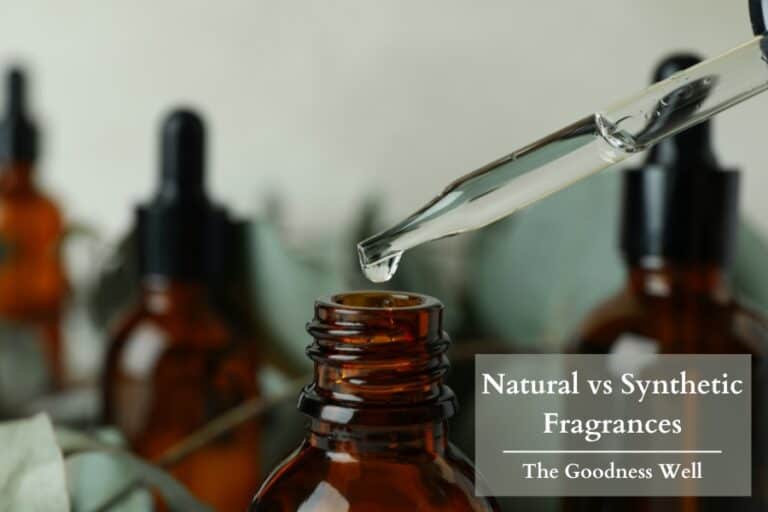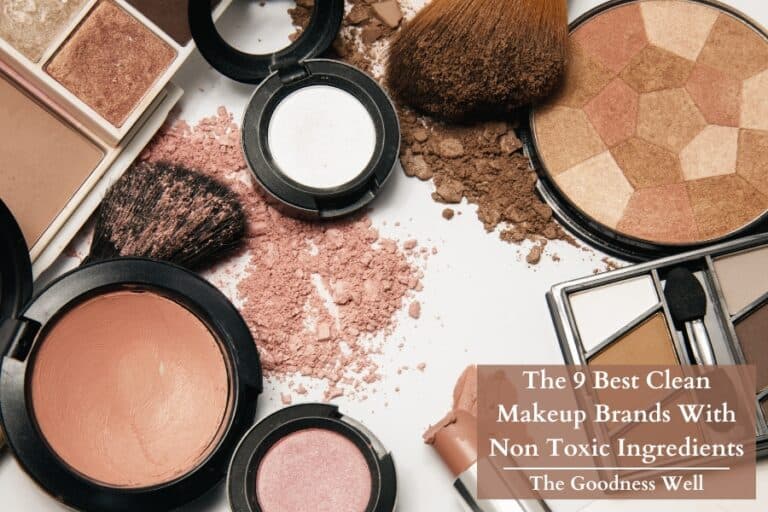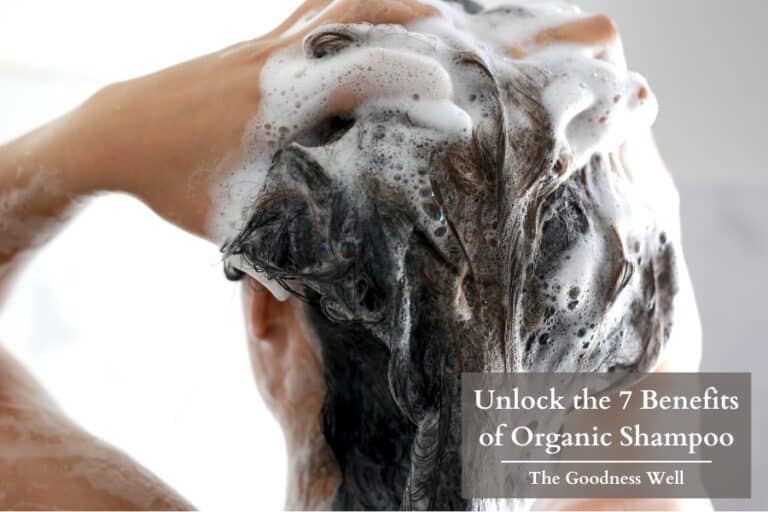The 5 Harmful Side Effects Of Perfume On Your Skin
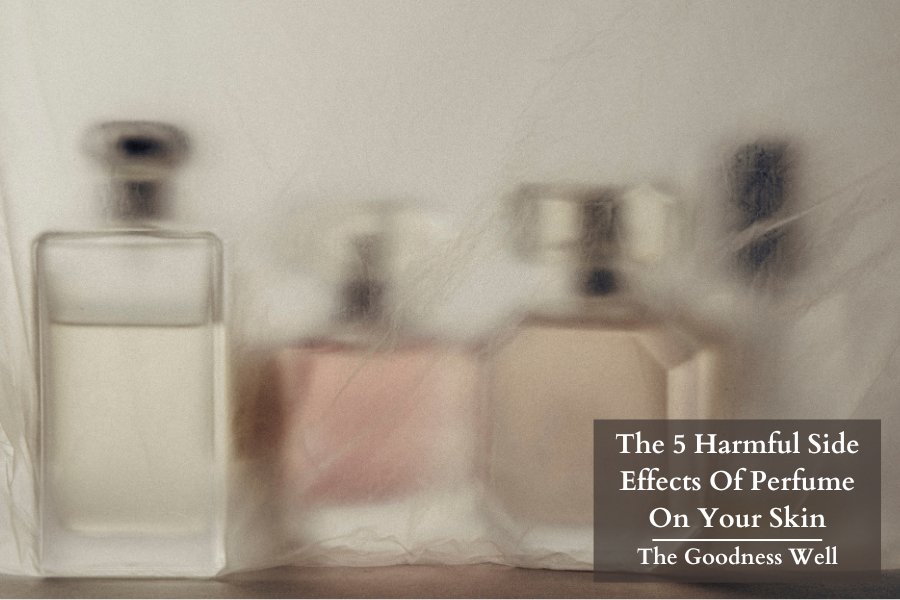
I used to think “you smell good” was one of the best compliments lol. But then I learned the truth.
The truth… meaning that there are quite literally thousands of chemicals hidden behind words like fragrance and perfume.
When I started to look into what these chemicals were and how they affected me, I was honestly shocked, to say the least.
Shocked at the lack of transparency, the disregard for consumer health, and the side effects of wearing perfume on your skin.
TL;DR
The 5 Harmful Side Effects Of Perfume On Your Skin
- Dermatitis
- Hormone Disruption
- Irritation – Dryness & Redness
- Pigmentation and Sunburns
- Respiratory Issues
The 5 Harmful Side Effects Of Perfume On Skin
1. Dermatitis
Dermatitis is essentially your skin throwing a fit. It gets inflamed, itchy, and really irritated.
When it comes to perfume-causing dermatitis, think of your skin as having a dislike or allergy to certain ingredients in the perfume.
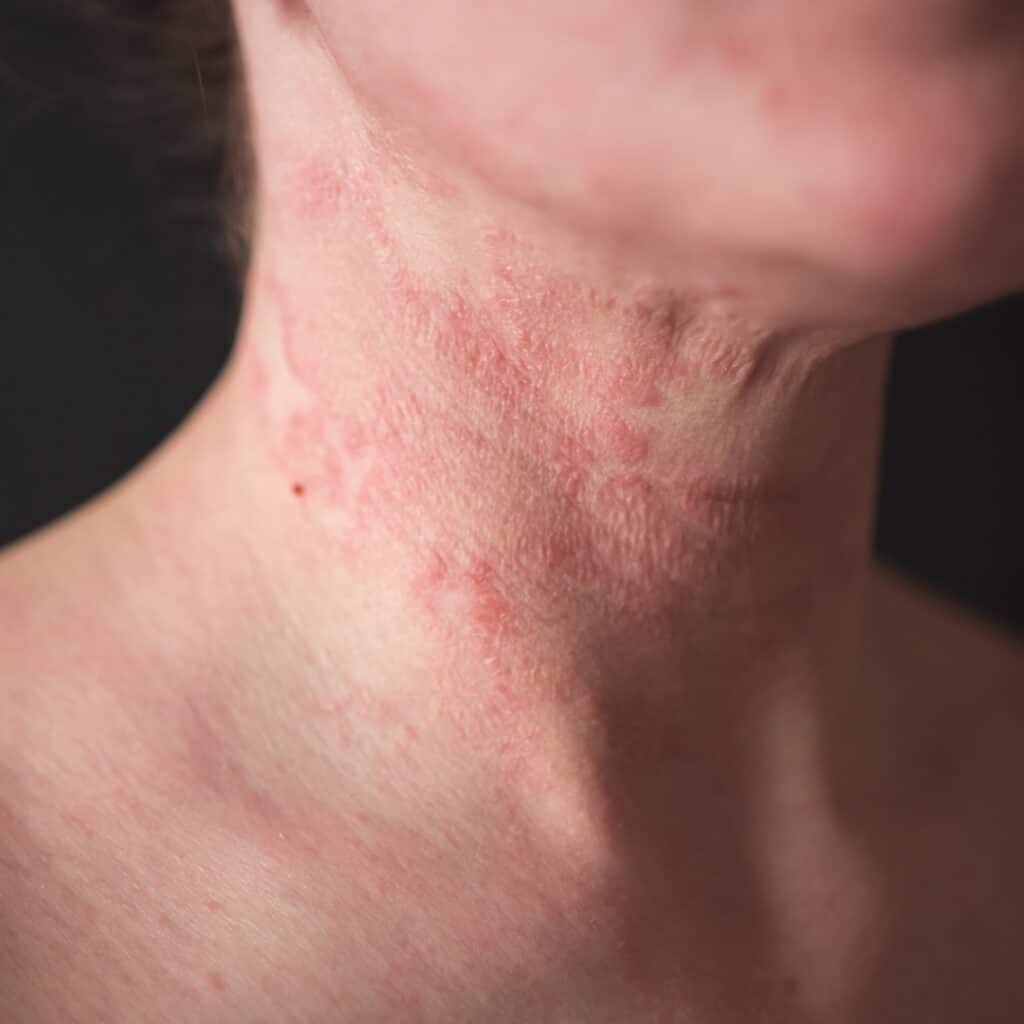
Just like some people can’t stand certain foods, your skin can’t stand certain chemicals found in perfumes. When it comes into contact with them, it reacts by becoming red, swollen, and itchy, basically telling you it’s not happy.
Allergic Contact Dermatitis is the most common skin problem dermatologists see caused by fragrances.
2. Hormonal Disruption
Imagine your body’s hormone system as a finely tuned orchestra, and then a perfume ingredient comes in like a loud, off-key trumpet.
Certain chemicals in perfumes, like phthalates, can mess with the body’s hormone balance, playing havoc with this natural harmony.
When you’re exposed to certain fragrances, they can set off a series of reactions in your body including increased stress, altered acidity of your body, disruption in hormone production, and inflammation.
Fragrances can have these effects because of it’s chemical structures that can activate enzymes in your body that incorrectly modify hormones, leading to different health issues.
3. Irritation – Dryness & Redness
For some, spraying on perfume can cause (sometimes instantly) skin reactions like rashes, redness, or soreness after using the fragrance.
Perfume irritation can also lead to contact urticaria aka hives.
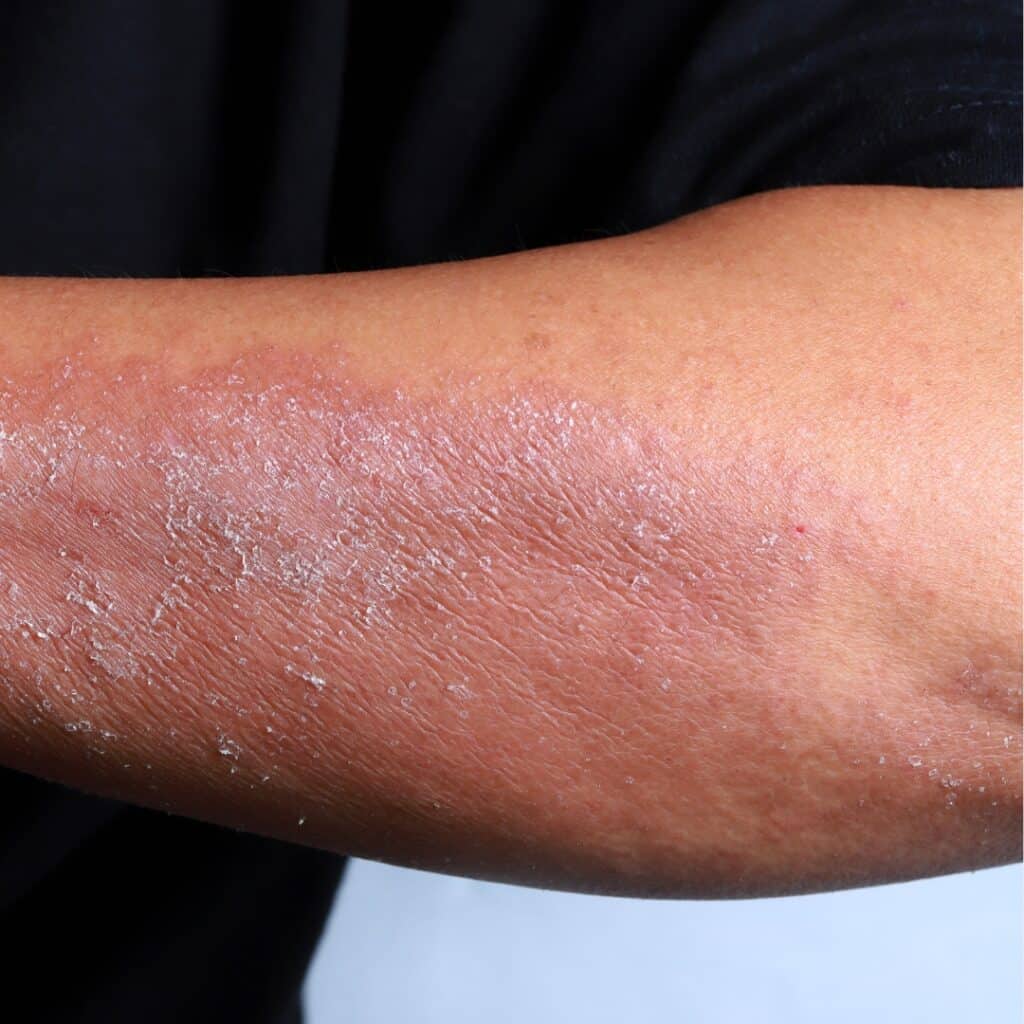
Not to mention, some sneaky ingredients in the perfume can steal away your skin’s moisture, leaving it dry.
4. Pigmentation and Sunburns
Perfumes can make your skin more prone to getting uneven color spots or even getting burned by the sun more easily.
After applying a fragrance, your skin can become extra sensitive to sunlight. This is called Photodermatitis which can result in a sunburn-like reaction only in areas where the perfume was applied.
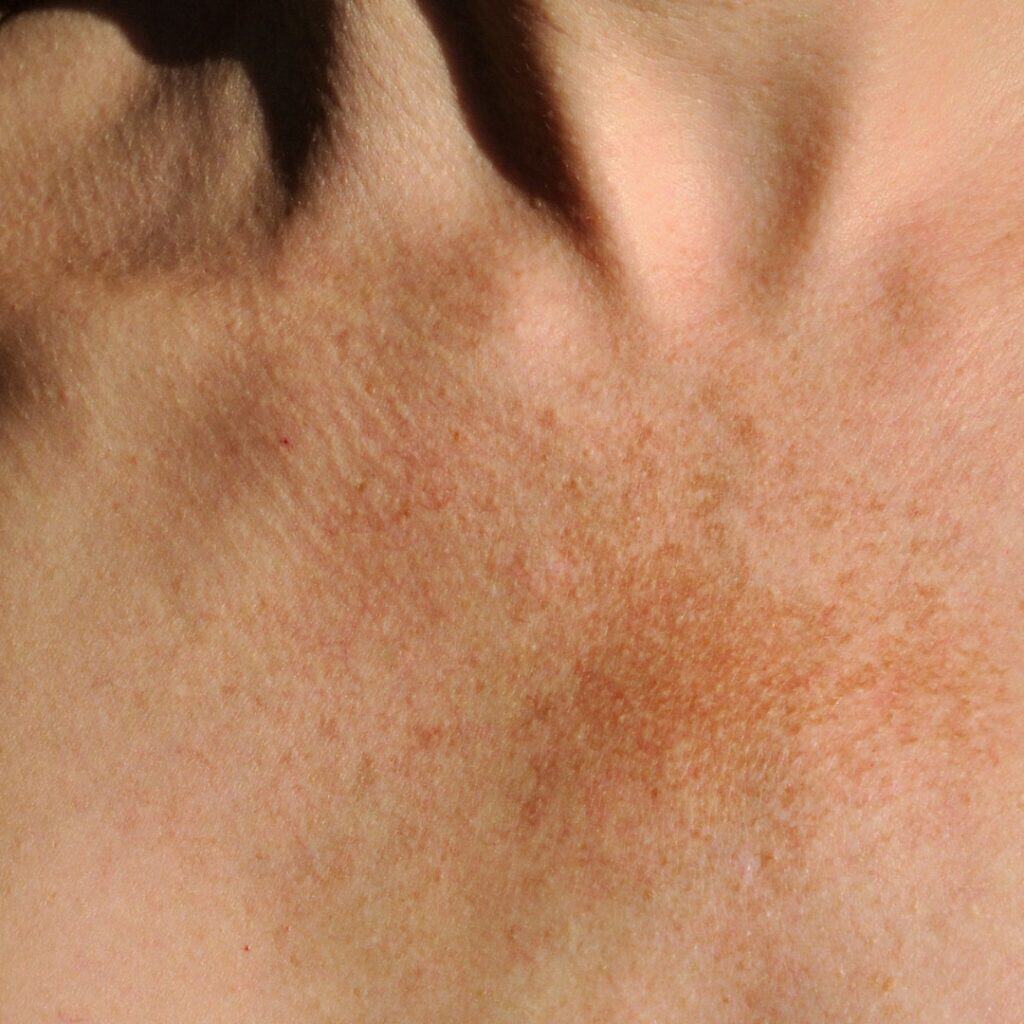
5. Respiratory Issues
Although this one is more about breathing in the perfume than skin contact, it’s still important.
For some people, inhaling perfume can trigger coughing, wheezing, or even an asthma flare-up.
In fact, breathing in tiny bits of perfume can irritate your airways, making any breathing problems you already have even worse, or it might even start new breathing issues.
Natural vs. Synthetic Fragrance
So now the good news! Some fragrances are okay and even safe to use! The natural ones!
But what’s the difference between natural and synthetic fragrances?
Natural Fragrances
Natural fragrances are derived from natural sources like plants and flowers, without synthetic compounds.
But just a disclaimer…Even natural ingredients can cause allergic reactions in some people.
Synthetic Fragrances
On the other hand, synthetic fragrances are made from chemical compounds, many of which are manufactured from petroleum or other non-renewable resources.
These fragrances are made to mimic natural scents or create aromas based on places, things, and even aesthetics (Paris Café, Pumpkin Spice, Island Vacation).
But remember, even though synthetic fragrances can smell amazing, manufacturers make them from harmful substances.
According to The Environmental Working Group, chemicals like phthalates, octoxynols, and nonoxynols can be found in many fragrances and perfumes.
“Phthalates act as hormone disruptors linked to reproductive system birth defects in baby boys. Octoxynols and Nonoxynols break down into persistent hormone disruptors, as well.”
Why is there fragrance in skincare products?
So if they’re clearly not the best, why do manufacturers still use synthetic fragrances in skincare and other products?
Well, you see…many people don’t know the risks and hidden dangers of synthetic fragrances, and companies know fragrances can make products more appealing and even mask the odors of some active ingredients.
These types of companies also use the sensory experience aspect of using a product that smells good.
Unfortunately, as we know, most of the time these fragrances are doing more harm than good and exposing us to unnecessary chemicals.
Unscented vs Fragrance-Free
So just a little tip, for when you’re looking for products without perfume or fragrances, there is a difference between unscented and fragrance-free.
“Unscented” means the product might have chemicals to hide the scent of other ingredients, while “fragrance-free” means the product doesn’t have any added fragrances.
It’s important to know the difference because a lot of brands put “unscented” on their bottles but still contain fragrances…
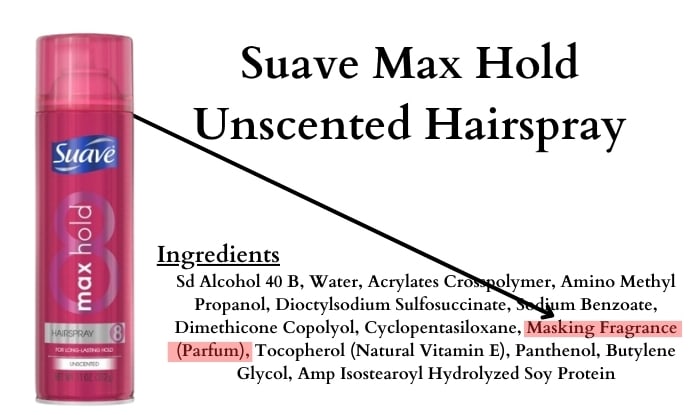
In short, the important thing is understanding how to read labels and using resources like EWG’s Skin Deep database to make sure you buy safe products.
Frequently Asked Questions
Not always, but it can be for people with sensitive skin or allergies to specific ingredients. It’s about knowing your skin and how it reacts.
Look for terms like “fragrance,” “perfume,” or “parfum” on the ingredient list. These often indicate the presence of synthetic fragrances.
Signs include the product causing redness, itching, swelling, or rash where applied. If you suspect an allergy, it’s best to consult a dermatologist.
If you have sensitive or reactive skin, yes. Choosing fragrance-free products can help avoid potential irritations.



